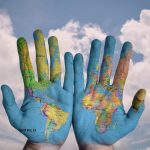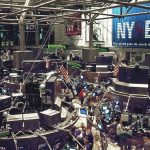Here, TIME talks to the producer of the festival for the past six years, Awele Makeba, about the drama behind the scenes of last year’s festival, and how the competition is not just about learning about black history, but also what children learn about themselves.
The documentary is about the 40th anniversary of the festival, and finals for this year’s competition are on Feb. 23. What was going on in history 41 years ago that led to its establishment?
Donald Oliver, the festival’s founder [and a former school principal] felt the testing and reading score data did not truly lift up students abilities. [In the contest,] you get to see students who have comprehended texts, analyzed it, who have taken it from the page to the stage. They are learning those skills.
Oakland also has this very rich history of activism over time and resistance to racism. From the ’60s going into the ’70s, you see an incredible amount of speaking out. A very strong contingency of now veterans of the civil rights movement left the Bay Area and went down to the South [during the civil rights movement]. You have the Black Panthers originating out of Oakland and their work speaking truth to power. Then you have San Francisco State University jumping off with its ethnic studies and black studies departments, as well as the civil rights movement and peace movement happening on the Cal campus. So I think all of that plays a role in why this oratorical festival happened in Oakland.
How has the festival evolved?
Students now both do monologues and scenes, not-so-famous speeches and poetry by people who are continuing Dr. King’s legacy. I’ve also added a dance party between the last performer and winners’ announcement, because it’s so hard to get to the district level for this competition, so we celebrate.
We’ve had severe budget cuts, and we haven’t had the funds that we need. Now we’re working with half of the budget we usually get. In fact, during the filming of the documentary, there was a teachers’ strike. Last year Oakland was one of the many districts that had a big teacher strikes. We were scheduled for a visit by HBO at the time of the strike, and we made a big decision we wouldn’t cross the line, so we pushed the date back for the oratorical festival finals until the strike was over.
Step Into History: Learn how to experience the 1963 March on Washington in virtual reality
What are the most popular Martin Luther King Jr. works chosen?
We do get his “I Have a Dream” speech, his “Letter from a Birmingham Jail,” his [anti-Vietnam War] speech at Riverside Church.
What do you want students to learn about King’s legacy by participating in this competition?
There’s the introduction to Dr. King and then there is adopting his philosophy as a way of being. How do we move from this tradition of celebrating and honoring Dr. King to truly embracing and adapting it for our own lives? That’s one of the dreams I have as an educator, especially in urban school districts.
I was touched by scenes of students who are immigrants talking about what MLK and his philosophy means to them.
It’s so beautiful to see that young man thinking about who Dr. King is and asking his Sri Lankan parents questions about himself, his culture and his history, trying to take the meaning and understanding of King to a deeper level to understand his origins and what it means to live King’s words. It’s not just about a speech.
Why do you think these speeches from the 1960s resonate with kids today?
The social-justice issues our community is facing continue from that time. We’re still fighting to dismantle inequitable structures and institutionalized racism, [and for] just immigration policies and practices. The March on Washington was about [equality in] jobs, homes, quality education. White supremacy is still alive unfortunately. Ask students if they know someone who has been incarcerated, and probably 80% of them will raise their hand. Middle schools and high schools have lost students to human trafficking. Our kids know ICE raids. Our city is a sanctuary city and our schools are sanctuary schools. They’re living this.
Why is this public speaking competition important?
Everyone’s voice matters. One of the most important things for anyone, to be seen and to be heard and to be validated, to recognize and affirm our humanity. I think that it brings together a very diverse community when things can be very divisive and communities separate. We come together and celebrate each other and love on each other. The documentary does all of that for us.
What kind of impact do you hope this documentary about a local competition will have on a national audience?
As they listen to the voices of the young people, maybe asking themselves how are they making their own communities better. What are life lessons from Dr. King and the legacy of King in own their communities? Think about how we make space for young people to speak and be heard and to be taken seriously, or just to be able to share. We program things so much for them; we don’t kind of sit back and see what they want. It is our dreams that make us.
Source: TIME



